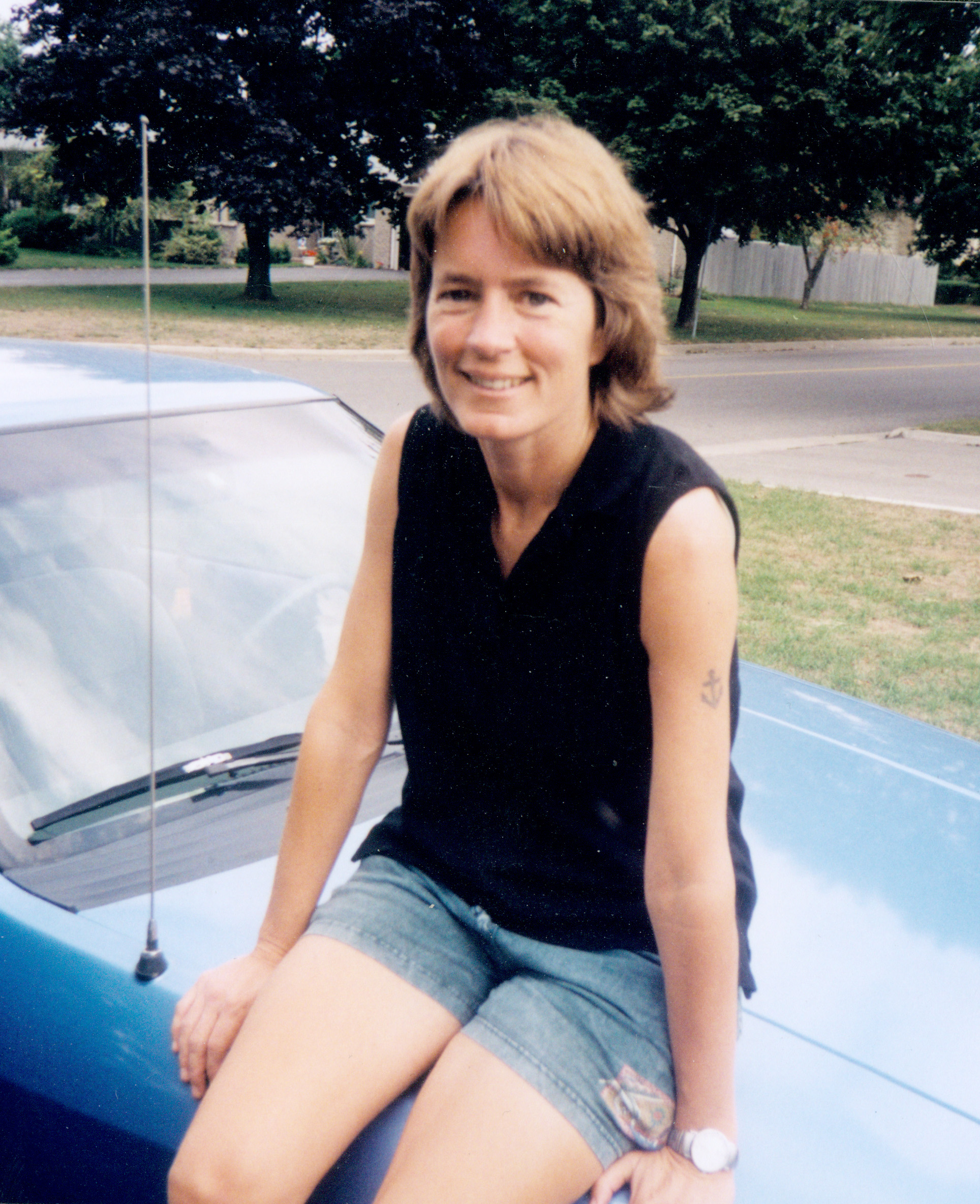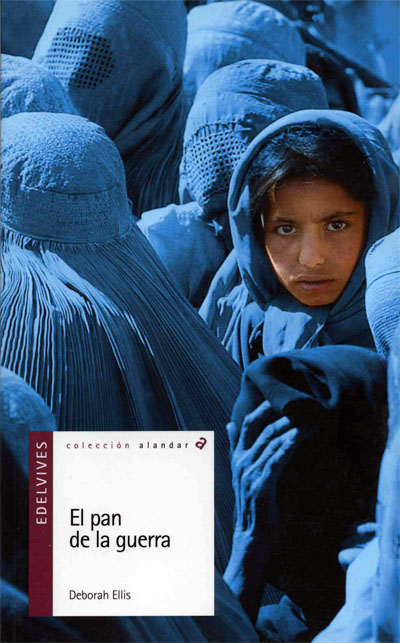¿Que te apetece leer?

 The themes in your writing (drugs, immigration, wars) are not the trending topic in young adult literature. Why do you think it is important that youth literature also cover issues such as drugs, immigration or war?
The themes in your writing (drugs, immigration, wars) are not the trending topic in young adult literature. Why do you think it is important that youth literature also cover issues such as drugs, immigration or war?
Regarding your question about the themes of my books - drugs, immigration, wars. I really have only one theme, and that is courage. Courage is a choice, and somedays we are able to make the choice to have courage and some days we don't make that choice. I am fascinated by how we make the choice about whether to act with courage or not. We are faced with that choice many times in our lives. The background to the stories is chosen because I don't like things that don't make sense, and war, addictions, leprosy, injustice, do not make sense because they happen because of human choice and we can learn how to make better choices.
You have received many prizes for your books. In 2000, you received Governor General's Award for Looking for X; in 2003, Jane Addams Book Award for The Journey of Parvana and, more recently, again the prize Jane Addams Book Award Special Commendation for the trilogy The Breadwinner. Have these awards served to publicize your writing and reach more readers?
I've been very lucky and am very grateful to have received awards for my writing. One of the great benefits of awards is that they have given me confidence to keep going when the work gets difficult.

How did you inspire yourself to write the character of Parvana in The Breadwinner, one of your most famous novels? Is she based on a real person?
The characters in The Breadwinner books are made-up, but they are based on many of the people and many of the stories I heard in the Afghan refugee camps in Pakistan.
When you finish reading The Breadwinner, nothing indicates you that it is the first book of a trilogy. Why did you continue the story of that girl in the book Parvana's Journey?
I continued Parvana's and Shauzia's stories in Parvana's Journey and in Mud City because I was curious about what would happen to each of them after they went their separate ways. I have gone a step further, and written a fourth book in the series. It will be published in Canada in September of this year. It is called My Name Is Parvana.
One of your books, not translated into Spanish yet, is the short story collection Lunch with Lenin and Other Stories, which deals with drugs’ theme, from different perspectives. Usually, novel seems to be your genre of choice. Why did you decide on the short stories in this particular book?
Lunch With Lenin came about because everywhere I travel, I hear stories of kids whose lives have been affected by addictions and the illegal drug trade. I wanted to highlight as many of those situations as possible, which is why I did a short story collection. Plus, there is a different challenge to writing short stories than there is in a novel, and it's always good to have a new challenge.

The Heaven Shop tells us the story of three brothers whose parents die. They are separated and go to live with different uncles. After passing through some adventures and hardships, they get together and recover the coffin workshop his father owned. How did you get the idea of taking their coffin workshop and completely change his meaning, in principle, so negative?
The Heaven Shop is about two sisters and one brother. They become orphans because of the AIDS epidemic. Their father used to run a small business making coffins, called The Heaven Shop Coffiins. When I was in Malawi and Zambia, I saw many coffin shops with names similar to that. In the novel, the children work to rebuild the family business so that they can look after themselves and other children they meet.
As we read, The Heaven Store could be made into a movie. What can you tell us about the project?
There was work done to make The Heaven Shop into a movie - I wrote a script, the producers worked hard to make it happen. I'm still hopeful that this will happen. Currently, The Breadwinner is being worked on by a film production company.
 Company of Fools, another one of your not-Spanish-translated book, is one of the few that is not contemporary. It`s about a theater company that entertains infected and dying people during the Black Death in Paris in 14th century. How did you discover this theater company and what attracted you to dedicate them a novel? We read that you'd want to write a sequel, can you advance us something about it?
Company of Fools, another one of your not-Spanish-translated book, is one of the few that is not contemporary. It`s about a theater company that entertains infected and dying people during the Black Death in Paris in 14th century. How did you discover this theater company and what attracted you to dedicate them a novel? We read that you'd want to write a sequel, can you advance us something about it?
The Company of Fools came about because I have always been fascinated by the Middle Ages and the challenges people had to face back then. I haven't planned to do a sequel - but who knows?
In Mud City, the protagonist, Shauzia, wants to leave the refugee camp in Pakistan where she lives and come to France to meet Parvana. After The Breadwinner and Parvana's Journey, in this third book you change the protagonist in orden to finish the trilogy, but you keep the female narrative voice. How did you decide to give more space to Shauzia’s character and transfer that leading role to her to be the one closing the trilogy?
I wrote about Shauzia in Mud City because I really liked her character - she had a rougher time than Parvana, in some ways, because her famiy was outright hostile to her. She is a combination of a dreamer and a realist, and someone I think I would like very much if I met her in real life.

I really enjoyed having Khyber in my head. She's one of those rare characters that just appears sometimes. She is very protective of her young twin brothers, who have rather severe autism, and very gentle with people she senses are on her side, but quite rough with those who are mean. She is very much an outsider in her school, and, because she lives in poverty, she is an outsider in her city as well. She can, therefore, totally understand her brothers who inhabit a world that is apart from the rest of society. I made her the child of an ex-stripper because I have known women who work in that industry who are also fantastic mothers, which is something we don't always give them respect for.

I've been very lucky to be published by some wonderful publishers, even when the books I've written have dealt with difficult issues. The many times I've had books rejected was because the book was bad - bad writing, bad idea - not because of the issues presented. Books are very personal things. Some people want to read books like mine, others want to read other books.
In one of your recent books translated in our country, No safe place, you move the action from the Middle East to the English coast, dealing with the issue of immigration. Did you interview any young illegal immigrant? How did you research for this novel?
I did the research for No Safe Place by spending time in Eastern Europe, Germany and France, and being in Russia and England as well. Everywhere I go, I meet young people who are travelling on their own, looking for a safe place to land. Sometimes they find a safe place. Sometimes, they don't.
We have read you donate some of the benefits you got from selling your books. Thanks to them, they have been setting up schools, clinics and centers for women in Afghanistan. Also, you cooperate with organizations such as "Women for Women in Afghanistan"(women for women in Afghanistan) and UNICEF. What can you tell us about these experiences?
I'm very pleased that the money from some of the books is able to be put to good use. There are people who know how to build schools, how to train teachers, how to organize getting books to children in war zones, and so on. I don't know how to do those things, so I'm glad that what I do know helps support those who can do these incredible jobs.

It's very exciting to see my books translated into other languages. Sometimes, I get to meet young readers in other countries who have read my books in languages I don't know. Recently, The Breadwinner Books have been translated into the Afghan languages, which is fantastic.
Thank you very much for kindly answering our questions, Deborah.











